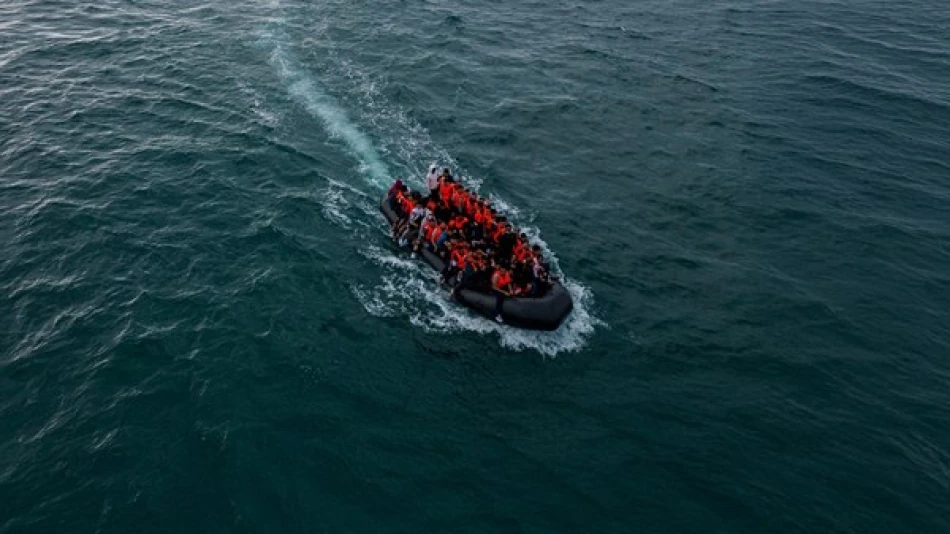
Migrants Vanish at Sea in Perilous Journey to Spain: Tragic Disappearance Highlights Dangerous Refugee Crossings
Mediterranean Migration Crisis Deepens as 12 Migrants Go Missing Near Spanish Balearic Islands
Spanish authorities are searching for 12 missing migrants who jumped from a boat approaching the Balearic Islands, highlighting a dramatic 77% surge in Mediterranean crossings to the Spanish archipelago this year. The incident underscores how migration routes are shifting across Europe's southern borders, with potentially deadly consequences for those seeking refuge.
Rescue Operation Reveals Desperate Journey
Spanish Civil Guard and coast guard units launched an immediate search operation after 14 survivors, rescued 58 kilometers southeast of Cabrera Island, reported that 12 fellow passengers had jumped overboard on Friday. The survivors, all from North Africa, were pulled from waters that have become increasingly treacherous as migration patterns evolve across the western Mediterranean.
The incident reflects the extreme desperation driving migrants to take fatal risks during sea crossings. Jumping from vessels often occurs when passengers panic about potential interception or when overcrowded boats begin to fail, leaving travelers with impossible choices between uncertain rescue and almost certain drowning.
Balearic Route Emerges as New Migration Hotspot
Spain's Interior Ministry data reveals a striking shift in migration patterns across the country's island territories. The Balearic Islands recorded 4,323 migrant arrivals through August 15, compared to 2,443 during the same period in 2024—a 77% increase that signals the route's growing importance for North African migrants.
This surge contrasts sharply with a 46% decline in arrivals to Spain's Canary Islands, the traditional gateway for West African migrants crossing the Atlantic. The shift suggests that smuggling networks are adapting to increased enforcement along established routes, potentially making the shorter but still dangerous Mediterranean crossing more attractive.
Strategic Implications for European Migration Policy
The Balearic surge reflects broader challenges facing European Union migration management. Unlike the Canary Islands route, which primarily channels sub-Saharan African migrants, the Mediterranean pathway to the Balearics connects directly with North African departure points in Algeria and Tunisia, where political instability and economic pressures continue driving emigration.
For Spanish authorities, this represents a significant operational challenge. The Balearic Islands lack the extensive reception infrastructure developed in the Canaries over decades of managing migration flows. The sudden increase strains local resources and requires rapid scaling of search-and-rescue capabilities across a wider area of Mediterranean waters.
Regional Context and Enforcement Pressures
The route shift aligns with increased cooperation between European and North African governments on migration control. Enhanced patrols along traditional crossing points may be pushing migrants toward less monitored areas, inadvertently increasing risks as smugglers exploit alternative routes with less developed safety protocols.
This pattern mirrors similar displacement effects seen across the Mediterranean, where intensified enforcement in one area often redirects flows rather than reducing them. Italy experienced comparable route shifts when increased Libyan coast guard activity pushed migrants toward more dangerous departure points, while Greece saw similar dynamics along its Turkish border.
The missing migrants represent more than statistics—they highlight how enforcement-focused policies without corresponding legal migration pathways can push desperate travelers toward increasingly perilous journeys, creating humanitarian crises that ultimately require the same costly emergency responses they aim to prevent.
Most Viewed News

 Layla Al Mansoori
Layla Al Mansoori






